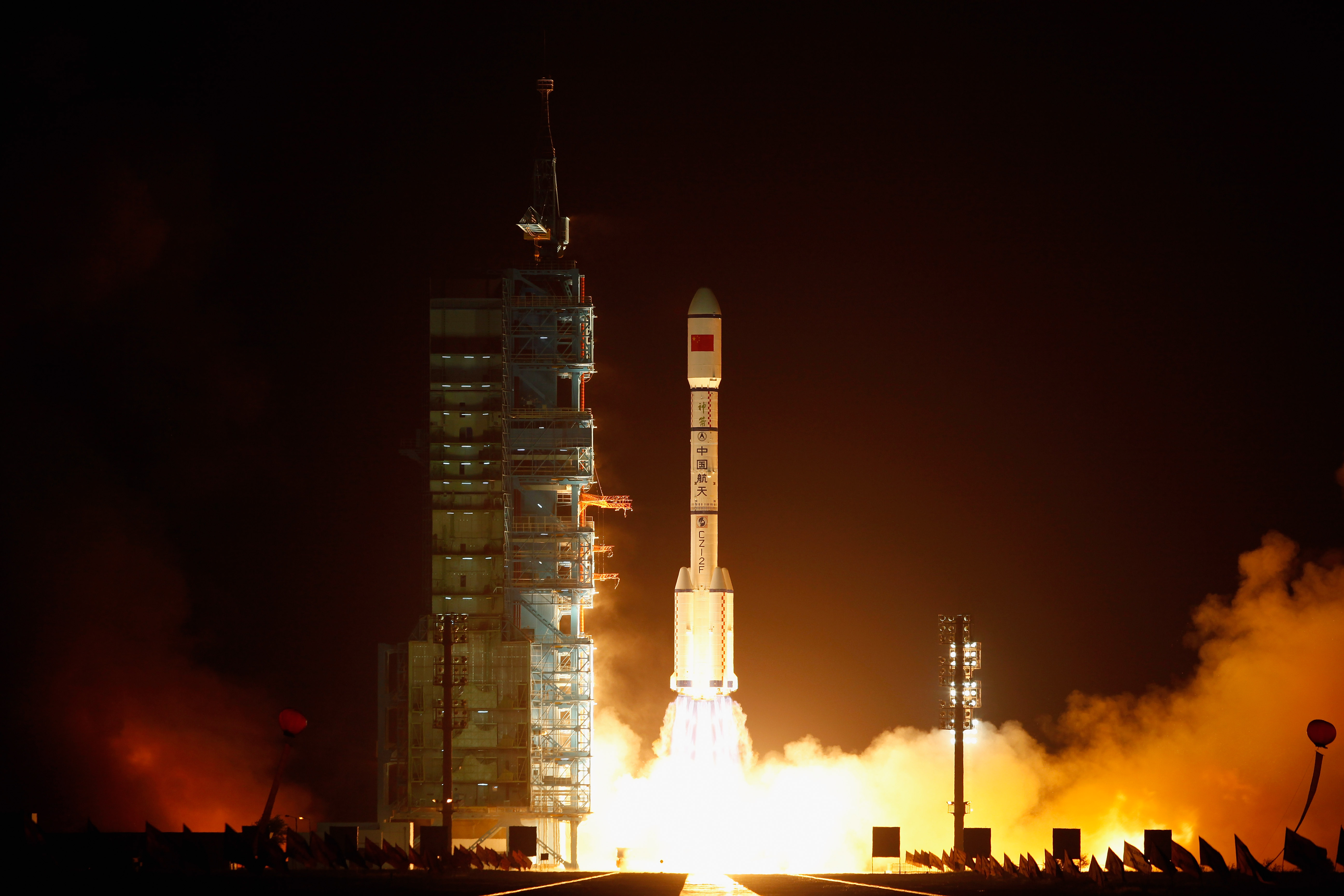China has big plans for its massive new rocket


China is looking to make its mark in space innovation.
Researchers are developing a rocket that would be more powerful than any U.S. spacecraft, Chinese state media reported Monday. Phys.org reports that the Long March-9 rocket, set to be complete by 2030, would be capable of delivering 140 tons into low orbit.
NASA's upcoming Space Launch System, meanwhile, aims to deliver 130 tons, and the Falcon Heavy from SpaceX launched 64 tons toward Mars earlier this year. China is reportedly hoping to surpass its American and European competitors, planning to spend billions of dollars developing its space programs.
The Week
Escape your echo chamber. Get the facts behind the news, plus analysis from multiple perspectives.

Sign up for The Week's Free Newsletters
From our morning news briefing to a weekly Good News Newsletter, get the best of The Week delivered directly to your inbox.
From our morning news briefing to a weekly Good News Newsletter, get the best of The Week delivered directly to your inbox.
The rocket, which would be the most powerful in the world if successfully built, would be used to explore deep space or to build a solar power plant. It could also be used to take humans to the moon, which China hopes to do soon.
Aside from the ultra-powerful rocket, China wants to build a space station by 2022, and will even try to build a base on the moon in the near future. Read more at Phys.org.
A free daily email with the biggest news stories of the day – and the best features from TheWeek.com
Summer Meza has worked at The Week since 2018, serving as a staff writer, a news writer and currently the deputy editor. As a proud news generalist, she edits everything from political punditry and science news to personal finance advice and film reviews. Summer has previously written for Newsweek and the Seattle Post-Intelligencer, covering national politics, transportation and the cannabis industry.
-
 Nasa’s new dark matter map
Nasa’s new dark matter mapUnder the Radar High-resolution images may help scientists understand the ‘gravitational scaffolding into which everything else falls and is built into galaxies’
-
 Is the US about to lose its measles elimination status?
Is the US about to lose its measles elimination status?Today's Big Question Cases are skyrocketing
-
 ‘No one is exempt from responsibility, and especially not elite sport circuits’
‘No one is exempt from responsibility, and especially not elite sport circuits’Instant Opinion Opinion, comment and editorials of the day
-
 Blue Origin launches Mars probes in NASA debut
Blue Origin launches Mars probes in NASA debutSpeed Read The New Glenn rocket is carrying small twin spacecraft toward Mars as part of NASA’s Escapade mission
-
 Dinosaurs were thriving before asteroid, study finds
Dinosaurs were thriving before asteroid, study findsSpeed Read The dinosaurs would not have gone extinct if not for the asteroid
-
 SpaceX breaks Starship losing streak in 10th test
SpaceX breaks Starship losing streak in 10th testspeed read The Starship rocket's test flight was largely successful, deploying eight dummy satellites during its hour in space
-
 Rabbits with 'horns' sighted across Colorado
Rabbits with 'horns' sighted across Coloradospeed read These creatures are infected with the 'mostly harmless' Shope papilloma virus
-
 Lithium shows promise in Alzheimer's study
Lithium shows promise in Alzheimer's studySpeed Read Potential new treatments could use small amounts of the common metal
-
 Scientists discover cause of massive sea star die-off
Scientists discover cause of massive sea star die-offSpeed Read A bacteria related to cholera has been found responsible for the deaths of more than 5 billion sea stars
-
 'Thriving' ecosystem found 30,000 feet undersea
'Thriving' ecosystem found 30,000 feet underseaSpeed Read Researchers discovered communities of creatures living in frigid, pitch-black waters under high pressure
-
 New York plans first nuclear plant in 36 years
New York plans first nuclear plant in 36 yearsSpeed Read The plant, to be constructed somewhere in upstate New York, will produce enough energy to power a million homes
